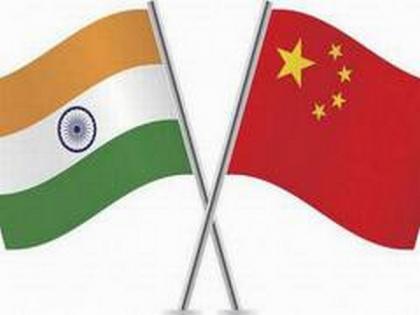India needs to reverse-engineer imports and invest in deep-tech to reduce dependence on China: GTRI
By ANI | Updated: July 4, 2025 08:18 IST2025-07-04T08:14:54+5:302025-07-04T08:18:56+5:30
New Delhi [India], July 4 : India needs to urgently take steps to reduce its growing dependence on Chinese ...

India needs to reverse-engineer imports and invest in deep-tech to reduce dependence on China: GTRI
New Delhi [India], July 4 : India needs to urgently take steps to reduce its growing dependence on Chinese imports, according to a recent report by the Global Trade Research Initiative (GTRI).
The report recommends reverse-engineering of low- to mid-tech imports, stronger domestic production incentives, and long-term investment in deep-tech manufacturing to strengthen India's economic resilience.
It also added that the need for this shift has become even more critical as geopolitical tensions with China rise.
GTRI said "India must nurture firms that can design and fabricate advanced components, and back them with targeted fiscal and regulatory support".
Over the past year, China has restricted exports of key raw materials and engineering support to other countries, including India. Since mid-2023, China has imposed export curbs on critical minerals such as gallium and germanium, which are essential for India's electronics, electric vehicle (EV), and defense industries. These actions have been seen as a clear warning to New Delhi.
The GTRI report revealed that India's trade deficit with China has now hit USD 100 billion. While India's imports from China surged in FY2025, Indian exports to China dropped sharply.
Currently, Chinese companies supply over 80 per cent of India's requirements in key sectors like laptops, solar panels, antibiotics, viscose yarn, and lithium-ion batteries, significantly increasing India's strategic vulnerabilities.
Additionally, Beijing has pulled out Chinese engineers from Foxconn's India unit, disrupting local production. China has also placed export restrictions on graphite, another crucial material for electronics and clean tech.
To reduce these risks, the report suggested that India must nurture domestic firms capable of designing and manufacturing advanced components. These companies should receive targeted fiscal and regulatory support from the government.
The report also called for a reassessment of Chinese firm involvement in India's sensitive sectors such as telecom networks, power equipment, fintech infrastructure, and critical logistics. Unlike Japan or South Korea, China is a strategic rival, and its role in these sectors should be carefully reviewed.
If necessary, restrictions must be put in place, and India should partner with trusted global players like Japan, Taiwan, and the European Union to build alternative supply ecosystems.
GTRI concluded that India's dependence on Chinese imports is not unavoidable. With a focused approach based on rapid import substitution, strategic investment in deep-tech, and strong screening of foreign involvement, India can move toward self-reliance while maintaining balanced global partnerships. The goal is not isolation, but a calibrated economic autonomy.
Disclaimer: This post has been auto-published from an agency feed without any modifications to the text and has not been reviewed by an editor
Open in app